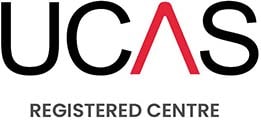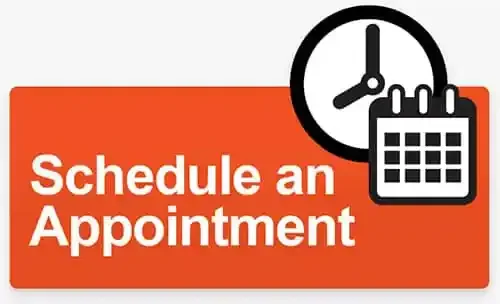”It is said that Education is the passport to the future, for tomorrow belongs to those who prepare for it today.”
Millions of people want to know how to get admission to the UK. There is no comparison with one’s home country as it is the primary teacher of every person and a great mentor to learn more. But yet, who doesn’t want to broaden his horizon on knowledge and experience?
The UK is the most preferred and desirable destination to study abroad. Getting admission to UK universities and having a higher degree is well-recognised and respected worldwide. Getting admission to UK universities is a dream for students because of its top-ranked universities and many subjects.
Just think, when you have a UK degree in your CV, wouldn’t it be a great selling point for you? Success will be knocking at your door.
Why is the UK one of the top choices for international students?
The reasons why the UK is one of the top choices for international students are shown here-
- The educational system of the UK comes with excellent educational infrastructure and is considered to provide one of the best quality education around the globe.
- It has a renowned teaching methodology.
- The UK universities are regularly inspected by the Quality Assurance Agency of Higher Education (QAA) to assess their standard of education, methodology, and research system.
- An international student can have a wide choice to select the subject they want to pursue.
- Thinking about studying abroad always comes with the burden of funds. And it is usually a headache for international students. In this case, the courses offered by the UK are shorter in duration.
- An international student can have a work permit during their studies.
- According to the QS World University ranking-2022, 4 universities from the UK are in the top 10.
- You can experience a multicultural environment by the cultural diversity in the UK.
- Studying in the UK demands excellent English language proficiency that can be to your advantage as English is the most spoken language around the globe.
Getting admission to a UK university claims some entry requirements for an international student.
The general entry requirements you need to get admission in UK universities are-
For the international foundation program:
- Academic requirements- A level/ HSC/ Equivalent
- English requirements- You need a minimum of UKVI IELTS overall score-4.5, But it can’t be less than 4.00 in each band.
For undergraduate program:
- Academic requirements- A level/ HSC/ Equivalent
- English requirements- overall IELTS score needed 6.00, and no less than 5.5 in each band.
For Postgraduate program:
- Academic requirements- 4 years Bachelor’s degree from any reputed university.
- English requirements- overall IELTS score- minimum 6.00-6.5, but no less than 5.5 in each band.
What if your qualification doesn’t meet the entry requirement
If your quality doesn’t meet the entry requirement, don’t worry. There are many undergraduate foundation programs available that are provided by most of the UK universities.
Such as, there is the OTHM level 3 that is equivalent to A level. An international student can seek admission to UK universities by taking the program.
What if your result is not up to the mark to apply for the desired university you aspire for? In this matter, you can take such development courses and be qualified.
Information you need to know about intakes to get admission to the UK.
Are you planning to study in the UK? There is some information you need to know about intakes.
The first step is to decide the intake you want to take. Generally, there are two intakes to apply in the UK.
They are the September/ October intake and the January/ February intake. But some universities in the UK also provide April/ May intake with a few courses.
- September or the Fall intake: The main intake you should grab to get admission to the UK in September or the Fall intake. In this intake, most universities in the UK are providing various courses.
Many universities or institutions in the UK offer their program at the beginning of September. The deadline for application submission would be between February and May of the academic year.
However, you should check the respective university’s website to know the details you are applying for because the timing can vary from course to course.
- January or the secondary intake: January or the secondary intake is the second intake for the students who somehow missed the September intake. This intake doesn’t offer you as many courses as the September intake. But it gives you more chances to work on your application process. The deadline for this intake would be between June and September.
- May intake: May intake is not available at many universities in the UK. Only a few universities are providing courses in this intake.
The applicatin process to UK universities
You need to follow many things to have a smooth application process to the UK universities.
The most important thing to apply to a British university is your English language proficiency. You can turn your dream into reality when you have a first-hand experience in English.
Before making the application process, you should prepare yourself with some information. But now, a student can also apply without an IELTS score. Many universities in the UK are now taking students without IELTS if you obtain a minimum required mark in your higher standard.
But there is a catch. You need to have an MOI certificate with a reference letter with an IELTS score.
Preparation to apply
- Choosing the appropriate degree is very important. Learn more about the universities and their given degree.
- You should have in-depth knowledge of tuition fees.
Things to take into consideration:
- Students outside the European Union(EU) and the European Economic Area(EEA) have to pay full tuition at UK universities. Even non-EU and EEA students are not eligible for loans and grants.
- Check if you are worthy of the scholarship to get admission to UK universities.
- Check the university requirements before applying. Some universities demand a specific IELTS band score or GPA to apply to their university.
- The application process seems simple, but in reality, it’s not. No matter how far your research is, an experienced team’s knowledge will always be more than yours. So before starting your application process, take an agency help who is working to help a student study abroad.
How to apply to UK universities?
To apply to UK universities, there are different application procedures for undergraduate and postgraduate students.
For undergraduate students-
If you are applying for the undergraduate program in the UK, you have to submit your Bachelor’s degree application through the UCAS application website. The majority of universities in the UK only accept applications from this website.
By following these easy steps, you can apply through UCAS
- First, on the UCAS website, Register and Create your application.
- Apply in the same or different universities with up to five programs.
- Provide personal information.
- Submit documents of all educational certificate.
- Write Statement of Purpose.
- Add your financial information.
To complete your application, you can take as much time as you can before the deadline. And after the final review, you can finally submit your application.
For postgraduate students-
Apply through the UK PASS system. Fill in all the details online, scan and upload all your Bachelor’s degree certificates, as well as a copy of your passport.
Required documents for university application
The university will need other documents on your academic record and identity, along with your personal information. Such as-
- Your birth certificates.
- National identification card and passport.
- If they want a reference letter, provide it.
- Proof of your English proficiency.
- Copies of your academic certificates.
- Provide document if you have any diploma or degree courses.
- If you are a graduate, you may also submit a research proposal.
Ok, you get a CAS from the university you have applied to. Now it’s time to process your visa.
Visa process to study in the UK
You must apply for a student visa in the UK when you are a non- EU/EEA student. Usually, there are two types of visas available for the students. Which visa you need usually depends on the duration of your course.
- Short-term student visa- the duration of the visa is a maximum of 6 months to 11 months. It is for those who want to pursue a short language course or research their program.
- General/ Tier 4 visa is for students who enrol in a bachelor’s degree/master’s or Ph.D.
Some tips for the UK visa application
- Always visit the Official of UK Government website to know the up-to-date information.
- Start your Tier 4 visa application process 3 months before your travel date.
- Before applying for a student visa, make sure you have a Certificate of Acceptance.
- Make sure the UK government approves your chosen institution as a licensed sponsor.
The condition that you must follow when you apply for a student visa
- Your age has to be 16 or over
- Proficiency in English is needed.
- You should have sufficient money to support all of your costs.
- Make sure a licensed sponsor has offered you a course.
Documents that you need for visa application
- Visa application form.
- It would be best if you had a valid passport or travel document.
- Passport size photograph.
- Financial proof.
- If you are a minor or less than 18, you need parental consent.
- Medical test report.
- Visa application fee.
- Immigration Health Surcharge.
- SOP
Can I get a work permit in the UK?
Good news on your way! The UK government has started their new Graduate Route Student visa.
It is a post-study work visa that allows international students to stay or look for work in the UK after being awarded a degree. If you have been awarded a Doctoral, you can stay for 3 years.
Can I get Health insurance facilities in the UK?
The National Health Service is free for everyone in the UK.
How AIMS Education- a student consultant in Bangladesh can help you get admission to the UK?
When you decide to study in the UK, you have to experience many processes. From applying to the university to getting a visa, there are many complicated steps and need hands-on experience to complete. In this case, the well-experienced counsellor of AIMS Education will be on your side throughout the whole journey and assist you like a true mentor.
So, when you have made up your mind to study in the UK, visit our AIMS Education to learn about the procedures and the scholarship offers.
FAQ- Frequently asked questions
Q. What are the requirements to study in the UK?
Ans: You need MOI, IELTS, or at least 65% marks in your 12th standard.
Q. Can I get admission to UK universities with IELTS?
Ans: You can. A student can study in any university in the UK based on your 12th standard’s English marks.
Q. Do I need to provide my medical test report?
Ans: Yes.
Q. What is CAS?
Ans: CAS stands for Confirmation of Acceptance for Studies. It will be sent by the university to which you have applied. With the CAS, they will send you a reference code that you have to provide on your Tier 4 visa application form.
Q. What are the benefits of studying in the UK?
Ans: 2-year post-study work permission, quality education, recognized degree, and Tier 2 visa, you can have good settlement options.
Q. Is it hard to get a UK visa?
Ans: No, it’s not hard to have a UK visa.
Q. Do UK universities offer scholarships?
Ans: Yes, most universities offer scholarships according to your merit and your chosen program.









